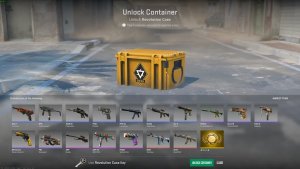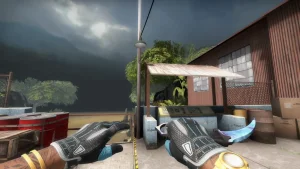Twitch is under scrutiny after revelations about the ongoing promotion of Counter-Strike 2 (CS2) skin gambling on the platform. Despite existing guidelines prohibiting such promotions, a recent investigation has exposed significant violations, prompting a closer examination of Twitch’s policies and enforcement actions.
Twitch’s Response to Gambling Concerns
Twitch’s investigation into skin gambling on its platform comes after an extensive report uncovered that numerous high-profile CS2 streamers were still promoting gambling sites.
Since skin gambling sponsorships were banned in 2023, the discovery that many streamers are still involved with these sites raises concerns about Twitch’s ability to enforce its own rules effectively.

Current Enforcement Challenges
Despite Twitch’s pledge to review the reported violations, many identified streamers continue to feature gambling content. This ongoing issue highlights potential gaps in Twitch’s enforcement strategies and the challenges of regulating digital content on a large scale.
Impact of Skin Gambling on Twitch and Beyond
The report revealed that streamers were offered substantial sums—up to $200,000 per month—to promote skin gambling. This significant financial incentive demonstrates the lucrative nature of these deals and the difficulty in deterring streamers from engaging with gambling sites despite the ban.

Platform-Wide Advertising Concerns
The issue extends beyond Twitch, impacting major platforms such as Google and YouTube. Skin gambling sites have been found placing ads on these platforms, which also restrict digital gambling advertising. This broader reach complicates efforts to regulate gambling content and protect users from potentially harmful promotions.
Revenue from CS2 Skin Market
The CS2 skin market remains highly profitable, with Valve reportedly earning around $60 million in a single month from skin cases alone. This revenue highlights the ongoing appeal of skin gambling and the financial stakes involved, despite regulatory efforts to control it.

Regulatory Efforts and Challenges
Efforts to regulate skin gambling have largely been addressed on a regional basis, often requiring government intervention. Barron’s identified up to 27 unlicensed skin gambling sites advertising on major tech platforms, emphasizing the need for more robust and coordinated regulatory measures.
Summary of Key Issues
- Violation of Twitch’s Policies: Continued promotion of skin gambling despite a 2023 ban.
- High Financial Stakes: Streamers receiving offers up to $200,000 per month.
- Platform-Wide Impact: Gambling site ads appearing on Google and YouTube.
- Economic Impact: CS2 skin market generating significant revenue for Valve.
- Regulatory Gaps: Unlicensed gambling sites operating on major tech platforms.

Conclusion: Moving Forward with Effective Regulation
The ongoing issues with skin gambling on Twitch and other platforms highlight the need for improved enforcement of advertising regulations. As Twitch investigates these violations, it is crucial for all involved parties to address the challenges and work towards a safer digital environment for users.

